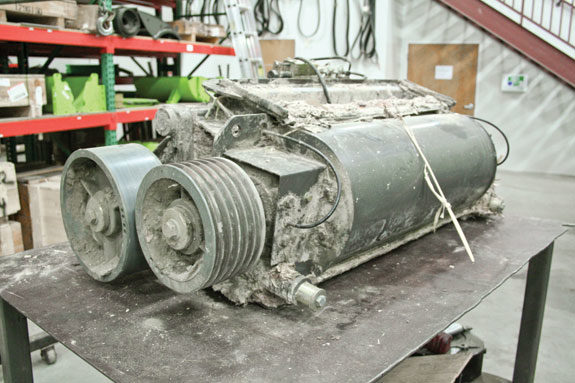Around this time of the year, forage producers are usually tired after having worked throughout the year. However, even though this is the off-season for crop producers, it is the on-season for dealers and service technicians.
Now is the time for producers to have work done on their equipment, so take advantage of it.
I visited with Kevan Larson at the local Agri-Service dealership recently. If you remember, last time he told us about some basic preventative maintenance tips forage producers should keep in mind throughout the year. This time, though, I asked him about the types of equipment repairs he was seeing.
Some of the work and repairs that are done are covered under the equipment warranty. There is also basic maintenance being done on the equipment to get ready for the next season.
Whether they are balers, windrowers, choppers or loaders, dealerships are working on and making routine maintenance and warranty repairs to equipment that couldn’t be done during the crop season.
Even though this isn’t true for every piece of equipment, many of the repairs that are being done now could have been avoided if the equipment was properly maintained during the year.
None of the dealerships I spoke with were seeing many engine problems, which is good because as long as operators routinely change the air filters and change the oil, the risk of having an engine problem decreases.
Even though this is your downtime, it’s a great time to plan ahead and make necessary repairs to you equipment before the problem becomes a headache later in the year. Now is the time when dealers and mechanics can go in and make necessary repairs, adjustments and maintenance checks.
What does it mean to take advantage of downtime?
An example of taking advantage of downtime is getting cosmetic repairs done to equipment. Many equipment pieces have brackets that probably need to be welded.
Faulty gears, chains and bearings should be repaired or replaced. Check your hydraulic system for any leakage problems. Leaks are usually a dead giveaway that there is something bad occurring, a tell-tale sign that something is wrong. And then, the big thing is going through maintenance checklists dealers are working on.
I remember working in the field this past fall. Some guys were chopping close by and came over to ask me if I could go over and disk the ends of the field.
They said the choppers were being torn to pieces because the ground was so rough. Examples like this show the strain equipment can undergo while being used, which leads to cosmetic damage to equipment.
What else could you be doing during the winter downtime?
Wintertime is a great time to attend, or send your employees to attend, training. Some dealers and educational institutions sponsor these training seminars.
Service teams have technicians that must also be trained in all areas of mechanics, such as engines, hydraulics, and electrical systems, to name a few.
These technicians are sent by their dealers to attend training as well, in order for the technicians to be prepared for new or future challenges.
“There are probably close to 100 hours in training that we go through each year,” says Larson. “We either take hands-on training or we do distant training.”
Keeping up with trends
Electronics are paving the way for agricultural equipment in the future. In the past, equipment has always given some control to the producer, but it was limited. New and emerging technology in electronics has made more options available to the producer.
“New electronics are making equipment more user-friendly for the operator to be able to manage what they want to control on the equipment,” says Larson.
Larson says operators can check switches on equipment, and control the speed of parts like knotters on balers. Recordkeeping is another advantage technology offers, because they can be stored and controlled electronically.
“Our idea is that if we can get the equipment in and get it worked on the way it needs to be worked on, you can just hook onto it in the spring and go on to baling,” he says. “Not having any problems all year saves owners money.” FG
PHOTO
“If we can get the equipment in and get it worked on the way it needs to be worked on, you can just hook onto it in the spring and go on to baling. Not having any problems all year saves owners money.” Photo by FG staff.










